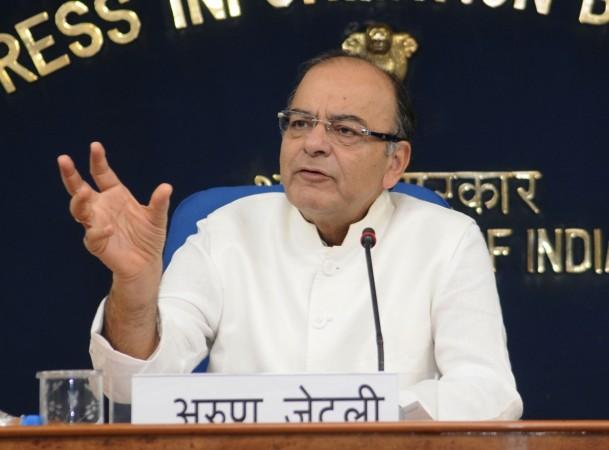
In a post cabinet meeting press conference on Wednesday, Finance Minister Arun Jaitley said the government implemented the 7th Central Pay Commission (CPC) recommendations in six months of its due date, while the previous two CPCs took 32 and 19 months, respectively.
Unlike the past, the arrears of pay and pensionary benefit will also be paid in this financial year (2016-2017), he noted. The overall burden on complete roll out will be Rs. 1,02,100 crore as against Rs. 40,000 crore in 6th CPC and Rs. 17,000 crore in the 5th CPC.
Jaitley highlighted that the recurring burden would be Rs. 72,800 crore and a burden of Rs. 84,933 crore in FY 2017 due to wage hikes.
Allowances: Allowances, a crucial factor that needs detailed study, is calculated at the existing rate until a high-level cabinet committee decides upon it, he added. Of the 196 allowances, 51 have been dispensed with and 37 subsumed.
Pay Matrix: The 7th CPC has categorised 3 pay matrix for civilian, defence and military nursing personnel, depending on the responsibility and nature of work. With this the earlier pay grade and bands will cease to exist. Each of the pay matrix will include many levels, whose minimum pay will be arrived at based on an index of rationalisation that accounts for their increasing role, responsibility and accountability in the hierarchy.
Minimum Pay: It has been decided to hike the minimum pay from Rs. 7,000 to Rs.18,000 across all the entry level central government jobs. The minimum pay for newly recruited class I officer will be Rs. 56,100, which would be in line with compression ratio of 1:3:12. That is, a class I officer on direct recruitment will earn three times the pay of a lowest entry level employee.
Increment: Rate of increment of 3 percent, which existed before has been maintained but employees stand to benefit from higher basic pay. In comparison to today this would be an increase of 2.57 percent on their annual increments. Also two dates of increment (Jan 1 and July 1) in place of one existing date.
Fitment/Multiplication Factor: With entry level salary now proposed at Rs. 18,000 (against Rs.7000 at the time of implementation of 6th CPC in 2006), a multiplication factor of 2.57 is proposed to bring in line with salaries across levels to today's (2016) standard. This is the minister said will apply across all levels of pay matrix.
"The demand was for a minimum wage of Rs 26000/- and fitment formula of 3.71."
Defence Pay Matrix: enhancements to Index of Rationalisation for Brigadiers from 2.57 to 2.67 and addition of more stages to Brigadier, Colonel and Lieutenant Colonel was approved. This is expected to bring parity with Combined Armed Police Forces (CAPF) counterparts at the maximum of the respective Levels.
Advances: House Building Advance was increased from its existing Rs. 7.5 lakh to Rs. 25 lakh. Except for the existing four interest free advances on medical treatment, LTC , travel allowance on tours/transfer and for family of deceased employees, all other interest free advances are abolished.
Insurance Money: monthly contribution by employees towards Central Government Employees Group Insurance Scheme (CGEGIS) will continue at existing rate. This will provide Rs. 1470 of more take home salary to entry level employees.
"Ministry of Finance to work out a customized group insurance scheme for Central Government Employees with low premium and high risk cover as social security needs"
Pension and Related Benefits: general recommendations of the 7th CPC on pension stands approved. However on two options suggested for pension revision, the second one that prescribes a fitment/multiplication factor of 2.57 will be implemented immediately. Feasibility of the first option will be tried after a committee's approval.
Gratuity also stands increased to Rs 20 lakh from the existing Rs 10 lakh.
The government has also proposed a few committees to implement national pension system effectively as well as another committee to look into the anomalies arising from 7th CPC implementation. Concerned ministries have also been assigned to deal with other administrative or cadre specific issues that the commission lacked consensus on.
Jaitley emphasised that the 7th CPC is primarily focused on boosting consumption and helping people enhance their savings than being excessively concerned about inflation. "Extra money also comes back into the system...part of salary will come back to the system," he said as a matter of fact without being excessively concerned on the repercussions.









